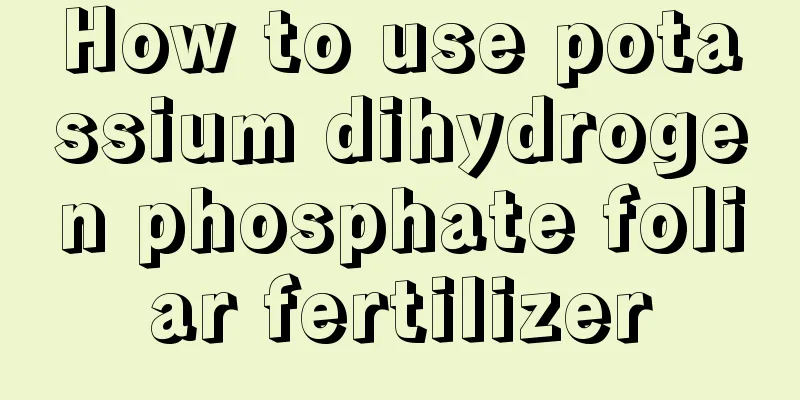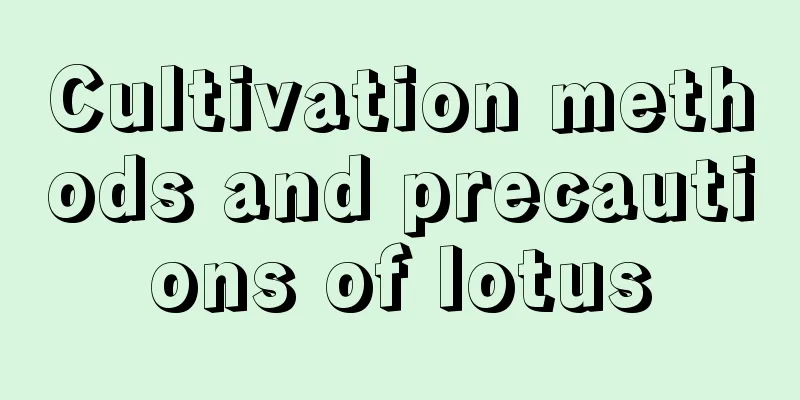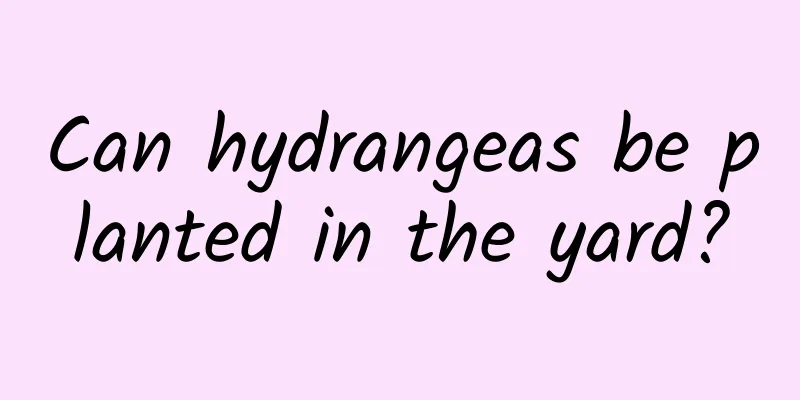How to use potassium dihydrogen phosphate foliar fertilizer

|
Potassium dihydrogen phosphate is a high-quality foliar fertilizer that can not only quickly replenish the phosphorus and potassium elements needed for crop growth, but also improve the crop's stress resistance and yield, and improve crop quality. It is a very wide range of nutrients in agricultural planting. So how to use potassium dihydrogen phosphate as foliar fertilizer? Let’s learn more about it below. 1. Use concentration The concentration of potassium dihydrogen phosphate used is 0.1%-0.3%, that is, 15-45g of potassium dihydrogen phosphate is added to 15kg of water. The amount of solution sprayed per mu each time is 30-50kg. Spray once every 10-15 days, and 2-3 sprayings are appropriate. However, when spraying cereal crops in the middle and late stages, even a high concentration of 0.5-1.0% can be used, that is, 75-150g mixed with 15kg of water. Just follow the instructions for spraying. 2. Usage time The spraying time is before 10 am or after 5 pm or all day on cloudy days. If it rains within 1 hour after spraying, you should spray again. If the adsorption capacity is strong, no re-spraying is required. 3. Specific usage (1) Fruit trees, such as apples, peaches, pears, and citrus: spray once during the initial flowering and young fruiting stages, using 100 grams of potassium dihydrogen phosphate per mu mixed with 50 kilograms of water; spray 2-4 times during the swelling stage, using 100 grams of potassium dihydrogen phosphate per mu mixed with 50 kilograms of water each time. (2) Vegetables , such as cucumbers, tomatoes, beans, eggplants, etc.: spray twice from planting to the pre-flowering stage, using 20-30 grams per mu each time and diluting with 15 kg of water; spray once every 7 days after fruit setting, using 20 grams per mu each time and diluting with 15 kg of water. (3) Wheat: Spray potassium dihydrogen phosphate before greening, during jointing, heading, flowering and filling stages. Apply 100-200 grams per mu each time, diluted with 50 kg of water. (4) Rice: Spray once at the tillering stage, jointing stage, and heading stage. The dosage is 100 grams per mu each time with 50 kilograms of water. (5) Corn: Spray potassium dihydrogen phosphate on corn after seedlings are established and during the jointing stage. The dosage is 100-150 grams per mu each time, mixed with 30-50 kilograms of water. 4. Notes (1) Avoid mixing with alkaline pesticides or fertilizers to avoid reducing the effect. (2) Avoid using it with products containing copper ions, as it will react with copper ions to form precipitates. (3) Avoid high temperature periods when using high concentrations. (4) When spraying, focus on the back of the leaves to ensure that they are moist but not dripping. (5) Store in a cool and dry place away from moisture. The above is an introduction to the use of foliar fertilizer potassium dihydrogen phosphate. In actual application, the concentration and dosage should be adjusted according to factors such as crop type, growth stage, soil conditions, etc. to achieve the best fertilizer effect.
|
<<: How to process sheep manure into organic fertilizer?
>>: Which type of foliar fertilizer is best for rice?
Recommend
How long does it take for the lucky tree to grow? Do you need to water it thoroughly?
1. How long does it take to slow down the seedlin...
When and how to repot jasmine
Jasmine is loved by many people for its fragrant ...
How and when to plant bell peppers Planting techniques and management points
The best time to plant bell peppers Bell peppers ...
Steps to making miniature bonsai
Source The height of a miniature bonsai plant sho...
When is the best time to transplant the elm tree?
In the autumn and winter of each year, a large nu...
How to prune jasmine
Pruning branches and leaves of jasmine Forsythia ...
How to plant freesia? Planting time and method
Freesia planting time The planting time of freesi...
How to deal with root rot of Clivia, how to deal with heart rot of Clivia
1. Treatment of root rot 1. Remove from the pot a...
Rose cutting time and method
1. Cutting time There are not many restrictions o...
Which succulents look better as they grow bigger?
1. Brilliant Sunshine The succulent plant, such a...
Cultivation method of autumn dendrobium
1. Soil To cultivate Dendrobium officinale, loose...
Yield and profit per mu of water spinach
Water spinach has high edible and medicinal value...
Kiwifruit Growth Environment Conditions and Characteristics
Kiwifruit Growth Environment Conditions and Requi...
Lemon flower soil preparation method
Lemon tree soil requirements The soil for growing...
Reference table of suitable planting density for millet planting row spacing and plant spacing
Millet planting spacing Generally, when planting ...









